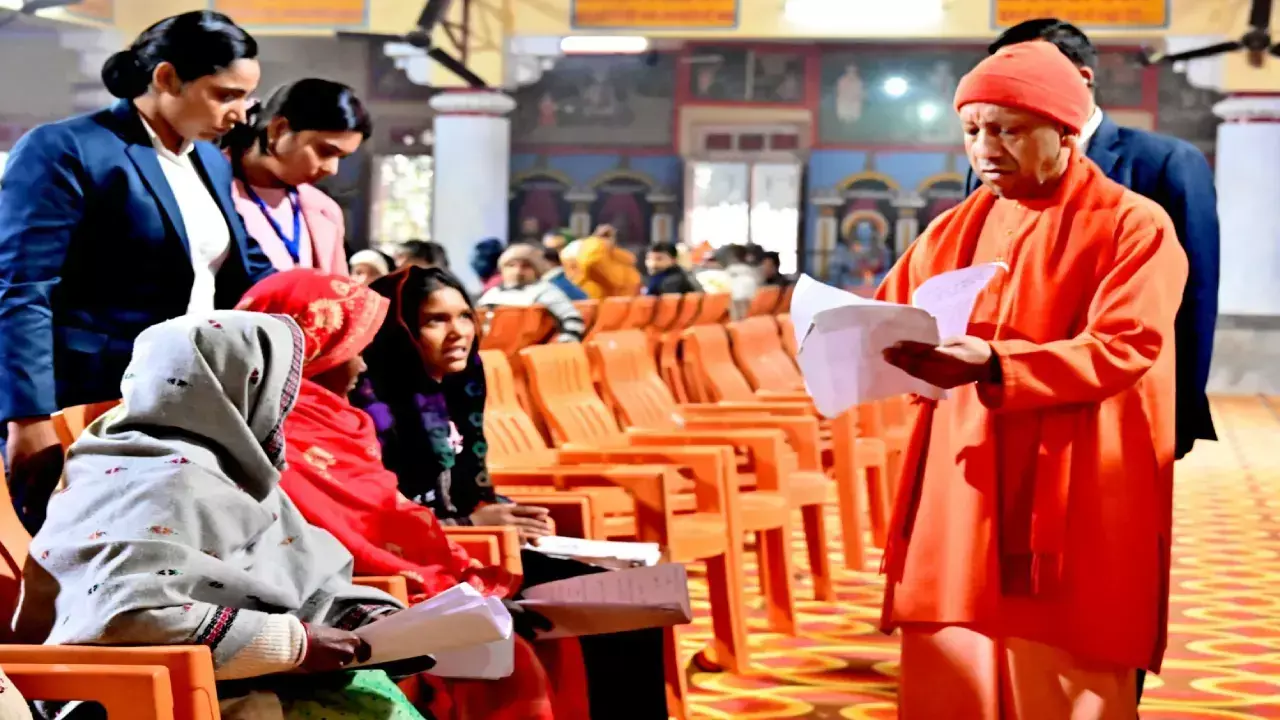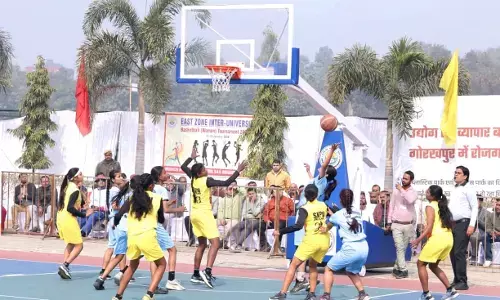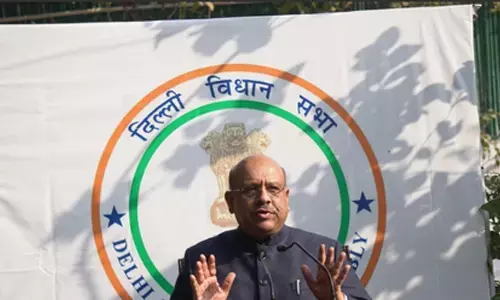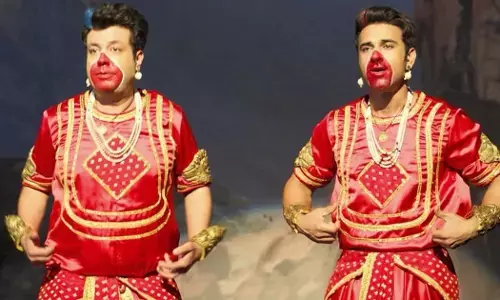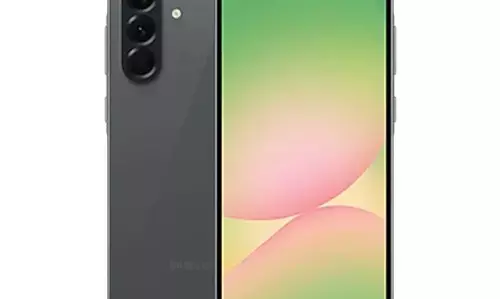Down Syndrome is no deterrent
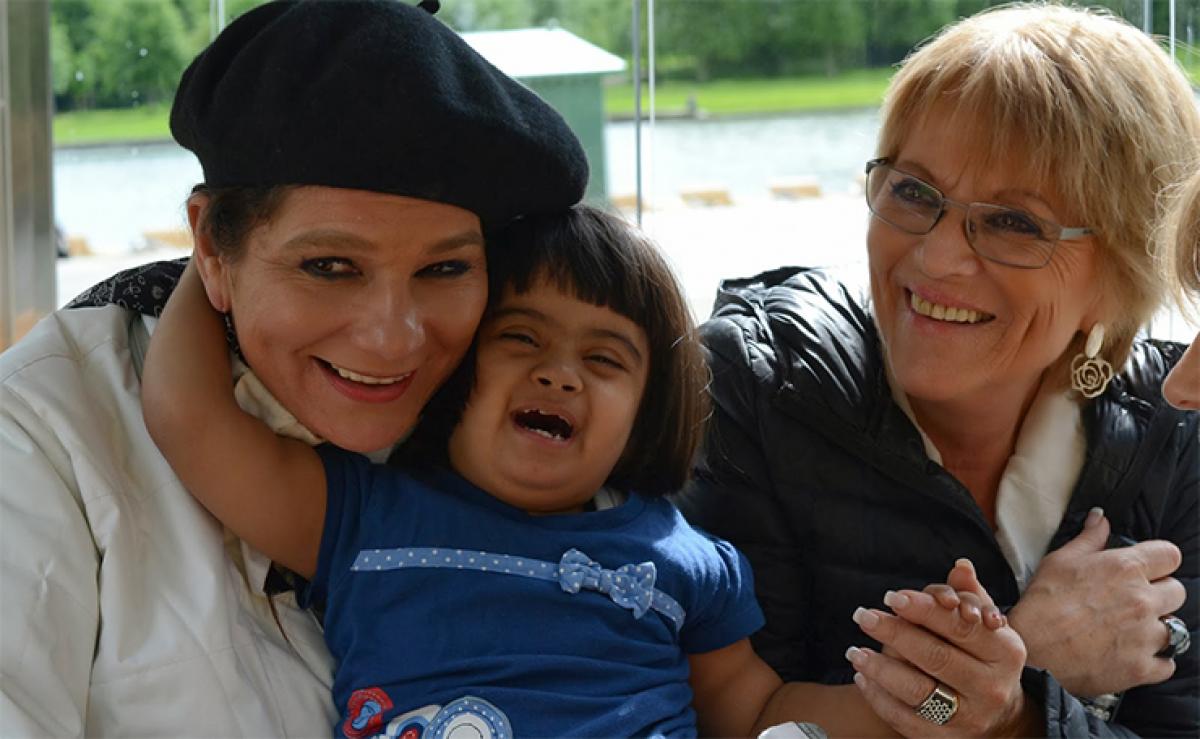
The World Down Syndrome Congress is being organised from Tuesday to create worldwide awareness and support for persons with this genetic condition. The congress aims to provide accurate and up to date information on best practices in the field of Down Syndrome to parents, educators, medical professionals, and direct service professionals across the world
What's it like to have this genetic disorder
.jpg)
The World Down Syndrome Congress is being organised from Tuesday to create worldwide awareness and support for persons with this genetic condition. The congress aims to provide accurate and up to date information on best practices in the field of Down Syndrome to parents, educators, medical professionals, and direct service professionals across the world
History of the condition
Down Syndrome is named after Dr Langdon Down, who in 1866 first described the syndrome as a disorder. Although Dr Down made some important observations about Down Syndrome, he did not correctly identify what causes the disorder. It wasn't until 1959 that scientists discovered the genetic origin of Down Syndrome.
What is this disorder?
Down Syndrome (DS) is one of the most common genetic birth disorders. Normally, each cell in the human body contains 23 pairs of chromosomes, which contain the genetic material that determines all our inherited characteristics. We receive half of each chromosome pair from our mother and the other half from our father. Individuals with Down Syndrome, have an extra 21st chromosome.
Down Syndrome occurs in approximately 1 of 830 live births. It is associated with mild to moderate learning disabilities, developmental delays, characteristic facial features, and low muscle tone in early infancy. Many individuals with Down Syndrome also have heart defects, leukemia, early-onset Alzheimer's disease, gastro-intestinal problems, and other health issues.
Through a series of screenings and tests, Down Syndrome can be detected before and after a baby is born.Life expectancy for individuals with Down Syndrome has dramatically increased over the past few decades as medical care and social inclusion have improved. A person with Down Syndrome in good health will on average live to age 55 or beyond.
Down Syndrome Federation of India (DSFI)
Down Syndrome Federation of India (DSFI), an organization that offers support to individuals with Down’s Syndrome and their families through various Down’s Syndrome Institutions across India. Established in the year 1984, with 6 children, DSFI today serves innumerable children not only around India, but also the Middle East. Dr Surekha Ramachandran’s brainchild, DSFI, has been a constant source of support and encouragement for people who are unable to come to terms with DS. DSFI has been working for the cause of all those who are affected by Down Syndrome – whether it is individuals with DS, parents or siblings. Among the services offered include counselling distraught families, training children to overcome their shortcomings, providing physiotherapy, and speech therapy, and spreading awareness about Down yndrome.
WDSC 2015
In order to create worldwide awareness and support for people with this medical condition, Down Syndrome International (DSi) conducts the World Down Syndrome Congress (WDSC) once in three years in association with a host country. It is with the efforts of Dr Ramachandran that an event as prestigious as the World Down Syndrome Congress (WDSC) is being organised in Chennai from August 18-21 at ITC Grand Chola.
A typical Monday Morning - Time: 9.15 am A little chirpy girl in school Uniform is still yawning Breakfast- Done. Milk- half finished. Mommy is running around to find that pair of the socks. Girl now busy checking out what’s in her tiffin today. It is 09:25, time to rush. Mommy pulls the girl in lift. Little girl presses’ -2’ button in lift. A ‘Hi’ to the co-passengers in lift.A ‘Bye’ to the watchman in parking. Now in car, humming, ‘lungi dance, lungi dance’, ‘Wow Nanu sings well' Yeah, school has come.
A kiss to mommy and ready to start the day. Waiving to friends ‘Hi Friends, See Nanu come’ she enters her school. That’s a typical morning of a little girl called Navya. This story sounds pretty usual, but there is something special about this little girl ‘Navya’.Navya has one extra chromosome. And everyone believes this extra chromosome has brought extra cuteness and charm to this 5 year old which make her so much fun to be with.
Here we share the excerpts from our amazing journey with Navya so far. Let us first understand what is special with Navya. Navya has a condition called ‘Down Syndrome’ aka Trisomy 21. It is not a disease but a condition. Typically all of us have 23 pairs of chromosomes, in some children 21st pair has 3 chromosomes instead of 2 and that’s how the name Trisomy 21 came up.
This condition is also referred as Down’s Syndrome as scientist ‘Langdon Down’ first discovered it. So it is offensive to refer children with Down’s Syndrome as Down’s Kids. Our journey started on 6th Sep 2008 at IMRI Hospital, Kolkata, when Navya opened her twinkling eyes to this World. She carried an unusual look on her face and when we looked into her eyes for the first time, the connection was instant. It was love at first sight.
However the euphoria ended suddenly when the doctor said that they suspect her to be a ‘Mongol baby’ (the term loosely used to refer kids with DS) and they want to send her blood samples for some tests to confirm. There were no complications during the pregnancy therefore we were ready for any such news. The paediatrician told us that it is mostly likely a case of ‘Down Syndrome’ and she will be mentally retarded, the degree of retardation varies from case to case and we will have to wait and watch.
The gynaecologist also advised us to plan for another baby soon as this baby was not going to be “normal” – which was really foolish on part of the doctor. Soon we realised not all doctors are aware of the condition, most of them have bookish knowledge. We needed someone who knew someone with DS.
Our Yoga teacher Bhavana madam put us through Mr & Mrs Khullar. Mrs Khullar runs AKSHAR School in Kolkata. Akshar is an inclusive and integrated school. Khullars shared their amazing journey of 18 years with their lovely son Dhruv and inspired us to ignore all the negative opinions and focus on Navya’s all-round development. ‘Take her wherever you go, she will learn best from her surroundings”- that turned out to be the best advice.
Around the same time, we got to know about Dr Abhijit Bhattacharya at IMRI Salt Lake, Kolkata, who is a developmental paediatrician. He first heard us patiently, allowed us to vent out our fears and inhibitions and then directed us towards the therapies that would help Navya achieve her full potential in the long run. We started with the regimen of physio, occupational and speech therapy immediately. Dr Abhijit also recommended that Pallavi should resume her professional life.
Meantime we searched internet, read lot of articles and blogs on DS. Soon realised we need to share our experience as there were no blogs by any Indian parent yet. We had to move to Mumbai for work, Navya was just 8 months then. Dr Abhijit had recommended us to visit ‘Ummeed’ – a centre of kids with special needs at Lower Parel, Mumbai for Navya’s assessment and further course of action.
There we met Dr Roopa who is an excellent professional and a wonderful human being. She assessed Navya and told us Navya is progressing well. Dr Roopa also recommended getting Navya admitted to a regular school and day care centre so that she can interact with as many kids as possible. We approached some of the big names in pre-school business but most of them refused to take Navya stating that they were not equipped to handle kids with special needs without even seeing her.
It was evident that they didn’t want to invite wrath of other parents for accepting a special kid in their centre. But we were also not ready to accept this injustice to Navya and put pressure on one of the centre through a different route. The centre unwillingly accepted to admit Navya on trial basis. However, we backed out from the option as we didn’t want to take a chance with our angel. This episode shook us completely and we wondered what lies ahead for Navya.
Will she ever be accepted in our so called ‘civilised’ society? In the meantime, we were lucky to find a nanny named Sapna. Navya bonded with Sapna as if they had known each other for a very long time. Our routine was now set with Navya, her therapists, her Sapna Didi and our work. Navya responded to the therapies very well and started walking and speaking at the age of 2.5 years. It was delayed by more than a year but definitely worth the wait.
We continued our efforts to get Navya admitted to a preschool and met success in 2010 with “Just Kiddin” – a nursery school at Powai. They willingly accepted Navya and admitted her to Playgroup class. Navya created her own identity among the kids very quickly, by showering her unconditional love on everyone. We started getting compliments for her good conduct in the class. Navya also started developing interest in Painting and Dancing. We could see a very visible change in her personality within a month of her joining the school.
After clearing the initial inhibitions and completing trial period successfully, we admitted Navya to The Little Company (TLC) in 2013. She adjusted quite well to the routine and made friends very quickly. Her development sped up even more as she was now spending almost 8 hours among her age-group kids.
Now, Navya is a smart girl who can read, write alphabets and speak in English with decent vocabulary, can count till 20, can do almost all the activities that a kid in junior KG is supposed to do. She sings and dances to all the catchy numbers, loves to be photographed, enjoys going out, thoroughly enjoys watching movies in theatres, painting, playing with her toys and friends. She participates in all the events at school and day care with full enthusiasm and energy.
She loves to be appreciated and rewarded with a star of her palm by her teachers and therapists. She is crazy for chocolates and cakes (infact she celebrates birthdays of all the family members and friends by cutting a cake herself). Navya is fond of people and spreads happiness wherever she goes. She enjoys interacting with everyone – right from the infants to elderly people in our compound (whom she calls Dadi/Dadu), our building watchmen, our maids and sometimes complete strangers.
She is a very well behaved child, she is quick to forget/forgive and move on (we wish we could do the same and make our lives simpler and stress-free). Whenever she sees anyone in stress or unhappy, she will give a tight hug, rub your back like a mom and plant a kiss on our cheeks and say “Don’t worry”. If Navya misses the school, we get a call from the teachers. Her therapists get anxious if we don’t turn for sessions. She is everyone’s darling.
Navya has taught us many lessons; the importance of faith, patience, forgiveness and unconditional love in our lives. Navya’s delayed milestones made us celebrate all the small milestones. Did you celebrate when your little one got neck control? - We did. We waited for close to 2 years to see her take that little step on her own. She taught us to be thankful for all the things we have in life rather than cribbing about missing things.
Navya’s fan club is getting bigger and bigger with each passing day. We now proudly introduce ourselves as Navya’s parents rather than introducing her as our daughter. We are truly blessed to have her in our life. We are also thankful to our parents, family and friends for their unconditional love and support to Navya and us.
We are now gearing up for the next big challenge i.e. getting Navya admitted into Class 1 of a regular mainstream school. All big names are giving us the same answer that they are not equipped to handle Special kids. But we are confident that Navya’s magic will work again and another set of people’s opinions about Down syndrome will change for good.
(Navya’s parents can be reached at mylittlenavya.blogspot.com / [email protected] / [email protected])
Next Story








